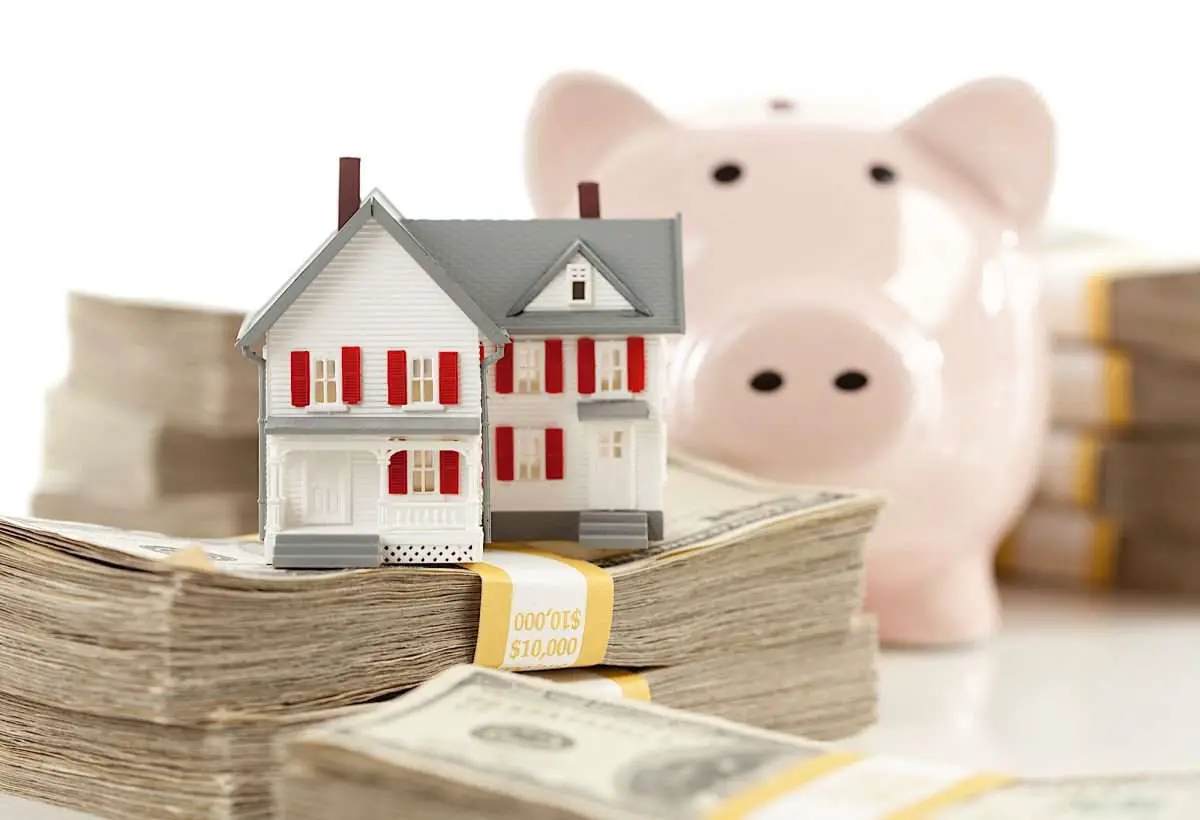Some Of The Disadvantages Of Using Your Home Equity
- You need to pay for various fees before you can borrow There are a number of costs that you have to pay for before you are allowed access to it, such as fees for the appraisal, the application, and legal documents.
- Variable rates = variable interest costs You might choose to borrow at a variable rate because initially, the rate might be cheaper than that of the fixed-rate option. However, be aware that if you choose a variable rate your interest rate can change.
- Using your equity for investment purposes comes with its own risks If you decide to use your home equity to make unsheltered investments, not only is it likely that you will have to pay taxes on them, but like any unsheltered investment, theres the possibility that you could lose your money because of how the stock market fluctuates.
- Failure to make your payments can result in your home being taken Defaulting on your payments can lead to your home being foreclosed. So, before taking out a second mortgage, you need to be absolutely certain youll be able to make regular payments.
Focus On Paying Off Your Mortgage
A portion of each mortgage payment you make will go toward the principal balance of your home loan. The rest will usually go toward paying interest, property taxes and homeowners insurance.
When you first start making your mortgage payments, a smaller amount will go toward reducing your principal balance and more will go toward your interest. The good news, though, is that the longer you have your mortgage, the more money will go toward reducing your principal balance and building your equity.
But its important to be aware that some loans dont operate this way.
If you take out an interest-only or other non-amortizing mortgage, you wont reduce your principal balance or build equity. Instead, your payments will only go toward paying your interest, property taxes and insurance. Eventually, youll need to pay a lump sum to pay off your principal balance.
What Is Home Equity And How Do I Use It
Learn about how to use the equity in your home, how to calculate it, and the pros and cons of using it to help you reach your financial goals sooner.
Sarita Harbour
If youre a homeowner, chances are you know that building equity in your home is a good thing. However, you might not find it so easy to really understand what home equity is, and how it can help you reach other financial goals.
Learn about how to use the equity in your home, how to calculate it, and the pros and cons of using it.
Don’t Miss: Usaa Used Car Refinance Rates
Pros And Cons Of Using A Home Equity Loan To Buy Another House
The major advantage of using a home equity loan to buy a second home is that it may be your best significant source of funding if you find yourself house-rich but cash-poor. Another potential plus is that interest rates on home equity loans will often be lower than other forms of borrowing, though they are typically higher than interest rates on a mortgage.
The biggest downside of using a home equity loan for buying another propertyor for any other purposeis that you are putting your primary residence at risk because it serves as collateral to secure the loan. If you find yourself unable to make the payments on your home equity loan, the lender could foreclose on your home and evict you.
An additional danger is that by taking on a home equity loan, especially if you still owe money on your first mortgage, you could find yourself overwhelmed by debt if you face an unexpected financial reversal, such as a job loss or big medical bills. Indeed, you could wind up obligated to pay off three mortgages at once: the remainder of the mortgage on your primary residence, a mortgage on your second house , and your home equity loan.
Finally, another downside is that youll have to pay closing costs on the home equity loan, which could be between 2% and 5% of the total loan cost. Youll also have to pay closing costs on the home that youre buying.
So What Is ‘home Equity’

As we previously mentioned, home equity is the difference between the amount you owe on your mortgage and how much your home is worth. For example, if your home is worth $500,000 in today’s market and you owe $200,000 on your mortgage, youd have approximately $300,000 in home equity you may be able to borrow against. To get an accurate idea of your equity, you may need to get your property professionally valued.
Recommended Reading: Is Prosper A Legit Company
Paying Off Credit Card Bills
The average credit card APR is now about 16%, so using a home equity loan to pay off high-interest credit card bills can be smart.
After all, some banks offer home equity loans with rates around 5%. If you transfer high-interest credit card bills to a home equity loan with a rate that’s less than a third of what you’re paying on your credit cards, you could save money and pay down debt faster.
Here’s an example:
Imagine you have $10,000 in credit card debt at 17% APR. If you made a minimum payment of $300 each month, you would spend 46 months paying it off and fork over $3,629 in interest in the process.
If you transferred that debt to a home equity loan at 5.49%, on the other hand, things look totally different. With the same $300 monthly payment, you could pay off your debt in just 37 months and pay only $875 in interest.
How Fast Does A Home Build Equity
How fast your home builds equity depends on a number of factors. The easiest and most consistent way to build equity is by making your regular monthly mortgage payments. Each payment will build hundreds of dollars in equity. You can also get more home equity if your home appreciates in value, but this is less reliable, since home values fluctuate over time.
Recommended Reading: How Long Sba Loan Take
Whats The Difference Between A Home Equity Loan And A Heloc
Unlike the single lump sum of a home equity loan, a home equity line of credit, or HELOC, provides flexibility. There’s still a total loan amount, but you only borrow what you need, then pay it off and borrow again. That also means you pay back a HELOC incrementally based on the amount you use rather than on the entire amount of the loan, like a credit card.
The other key difference is that HELOCs have adjustable rates. Your rate could rise or fall over the life of the loan, making your payments less predictable. HELOC rates are often discounted at the beginning of the loan. But after an introductory phase of around six to 12 months, the interest rate typically goes up.
How To Calculate Home Equity
To estimate how much equity that you’ve built in your home, subtract the loan amount owing on your current mortgage and any other loans secured against your property from the market value of your property. For example, if your home is valued at $500,000 and you still owe $350,000 on your mortgage, you have $150,000 in home equity.
You can also use this information to estimate your current loan-to-value ratio. Your loan-to-value ratio is a calculation used by financial institutions to assess the level of risk associated with lending on the security of your home. The LTV ratio will impact how much a lender can lend to you on the security of your home and potentially the interest rates that are offered to you for those loans.
To estimate your current LTV ratio, you divide the amount of money borrowed for your mortgage and any other loans secured against your property by the current appraised value of the property. Lenders use the lower of the propertys market value or appraised value to determine the LTV ratio.
When you apply for a home equity loan or HELOC, in addition to your LTV ratio, lenders will also check your credit score to see if you have good credit. They will also, among other things, ask for proof of income and look to see if you have an acceptable debt to income ratio.
Read Also: Can You Refinance An Upside Down Car Loan
Theres A Limit To How Much You Can Borrow
Theres also a limit to the amount you can borrow on a HELOC or home equity loan. To determine how much money youre eligible for, lenders will calculate your loan-to-value ratio, or LTV. Even if you have $300,000 in equity, the majority of lenders will not let you borrow that much money.
Lenders generally allow homeowners to borrow up to 80 percent to 85 percent of the value of their homes, minus existing mortgage balances. That number can be different from person to person, though, and depends heavily on your credit score, financial history and current income.
Con: Potential Legal Appraisal Administration Fees
Refinancing your home involves a full credit application with debt and income verification requirements as well as a credit check. Registering a new mortgage on the property means legal fees and usually an appraisal fee to verify the property value. You might also have to pay an administration fee.
Talk to your advisor about what to know when youre refinancing your home as each financial institution might treat these fees slightly differently.
You May Like: Stilt Personal Loans
Can You Use A Home Equity Loan To Make A Down Payment On A Home
Yes, if you have enough equity in your current home, you can use the money from a home equity loan to make a down payment on another homeor even buy another home outright without a mortgage. Note that not all lenders allow this, so if youre planning to buy the second home with a mortgage, you may need to shop around to find one that does.
What Are The Advantages Of A Home Equity Loan

Like we pointed out in the previous section, home loan interest rates are generally going to be lower than those associated with other types of credit products, like personal loans or . This is because the property youre borrowing against provides the lender with a high level of security. Another advantage with a home equity loan is that you can usually use the funds for almost any potential purpose, providing you with huge flexibility.
Also Check: Loaning Signing Agent
Down Payment For An Investment Property
If you are angling to become a landlord or purchase commercial property, you can expect to fork over a big down payment. In lieu of tapping into your personal savings, you could use your home equity to get the cash you need. Since home equity loans are secured by the value in your property, they often offer the most competitive interest rate you’ll qualify for.
How Do I Calculate Home Equity
To calculate the equity in your home, follow these steps:
Don’t Miss: Specialized Loan Servicing Ceo
What Can A Home Equity Loan Be Used For
So why would you want to take out a home equity loan rather than another type of loan? Simple. A home equity loan has the huge benefit that home loan interest rates are generally lower than other types of credit. Plus, the funds can be used for just about anything. This means a home equity loan can potentially help you save money, for example, if you’re looking to buy a car or pay out other types of debts. Popular uses of home equity loans include:
- Home renovations: You can use a home equity loan to finance improvements, which may increase the value of a property and may even create more equity for a real win-win.
- Property investing: If you’re looking to build your retirement portfolio, you can use a home equity loan to help finance an investment property.
- Lifestyle affordability: Home equity could also be used to finance large purchases, such as a new car, or to establish your own business.
Do I Have Home Equity
If youve been paying off your mortgage for several years, then you likely have at least some home equity. As we explained above, you build equity as you pay down your mortgage. If you decide to use your home equity to take out a second mortgage, youll need to have your house appraised to determine how much it is worth. But, if youre simply curious about how much equity you have or want a general idea of how much equity you have before you head to your lender, heres how to do a quick estimate.
Home value= $376,000
80% of value = $300,800
How much you still owe on mortgage= $232,000
80% of your homes value amount you owe on mortgage= $68,800
In this case, you can expect to get a second for $68,800 or less.
Keep in mind that the number youll get from the above equation is just an estimate as youll only truly know the current value of your house when you get it appraised.
Don’t Miss: Usaa Preferred Car Dealers
The Pros And Cons Of A Home Equity Loan
Editorial Note: The content of this article is based on the authors opinions and recommendations alone. It may not have been reviewed, commissioned or otherwise endorsed by any of our network partners.
A home equity loan lets you convert a portion of your homeownership into cash. It can be a great way to borrow a large lump sum of money however, if you default, you may face foreclosure on your home. Before reaching out to a lender, its important to fully understand the pros and cons of a home equity loan.
Using A Home Equity Loan To Buy Another House
The short answer to the question of whether you can use a home equity loan to buy another house is yes, you generally can. Bear in mind, however, that some lenders may have restrictions on the source of your down payment and may not be willing to issue a mortgage on the new home if youre using a home equity loan for that purpose. Of course, that will not be a problem if you are paying all cash for the new home.
Unlike a home equity line of credit , which provides a revolving line of credit, a home equity loan gives you the entire loan amount upfront. The amount will depend on how much equity you have in your home, its market value, and how much you want to borrow. Your income and will also affect the loan amount. Most lenders will cap the total amount at a percentage of the homes value. When your home equity loan closes, youll receive the full proceeds and can then spend the money to buy another house or do whatever you want with it.
Recommended Reading: Usaa Pre Qualify Auto Loan
Down Payment For Another Home Or Investment Property
Lets say you find a sweetheart deal on a second home or investment property but dont have the money to make the down payment, or do not want to wipe out your savings account. If you have enough equity in your primary residence, consider taking out a home equity loan.
Purchasing another home or property via a home equity loan will mean that you must pay a first and second mortgage on your primary residence, plus another mortgage on the new property.
Home Equity Loan Pros And Cons

Before deciding upon a home equity loan, consider the advantages and disadvantages.
Advantages of a Home Equity Loan
- Rates Are Lower:With your home serving as collateral, you wont pay as much interest as an unsecured loan with no collateral.
- Tax Benefits:If you use the loan to improve your home, you can deduct the interest when you itemize your taxes.
- Large Funds:Home equity loans probably provide more funds than any other source, including personal loans and credit cards.
- Flexibility: Whether its a need or a want , home equity loans can be used for any purpose.
Disadvantages of a Home Equity Loan
Read Also: 18009460332
Home Remodels / Upgrades
Home remodeling requires a lot of money that may not be readily available to you. Whether youre looking to remodel your kitchen or a bathroom, using the equity in your home to pay for these upgrades is the perfect low-cost solution. Plus, quality home upgrades can help raise the value of your home even more. If your project is on the smaller side, a home improvement loan might be a better option.
3) Debt Consolidation
You may also consolidate debt with a home equity loan. If you have significant high-interest debt, utilizing your homes equity to consolidate these debts can provide a more flexible and lower-cost option.
How Much Can I Borrow
The percentage of your homes value you can borrow depends on your lenders maximum allowed combined loan-to-value ratio, or CLTV. The max CLTV is the percentage of your homes value you are allowed to borrow.
For example, lets say that your home is worth $175,000. Your lender has a max CLTV of 82% and you currently owe $45,000 on your mortgage. Heres how you would calculate how much you could borrow:
0.82 x $175,000 = $143,500
$143,500 $45,000 = $98,500
In this situation, you could borrow up to $98,500. However, you should only borrow what you need. If you take out too much, it will gather interest even if you dont use it.
Recommended Reading: Usaa Used Car Loan Rates
